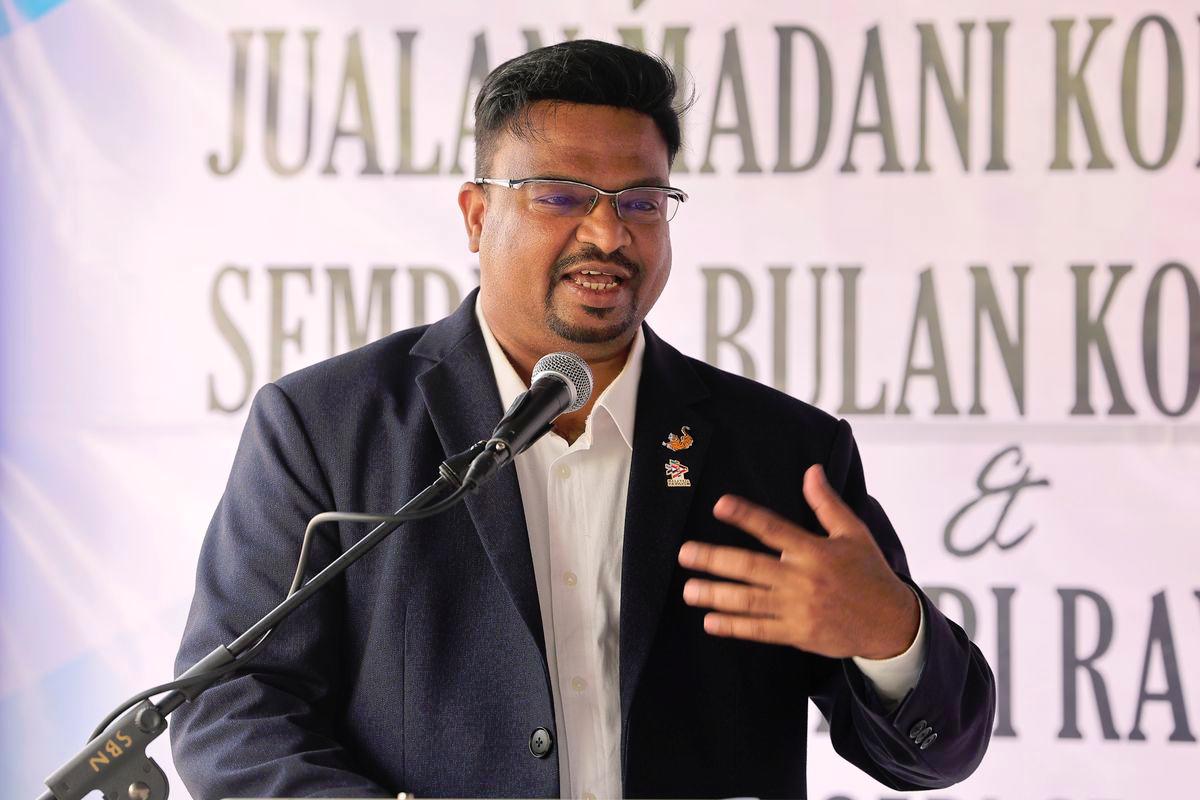SEREMBAN: The MADANI Cooperative and Agro MADANI Sales Programmes will be expanded to all districts in Negeri Sembilan, providing local communities with access to essential goods at prices lower than market rates.
State Entrepreneurship, Human Resources, Climate Change, Cooperatives and Consumerism Action Committee chairman S. Veerapan said the initiative is also the best platform to strengthen the network of cooperation between the community and government entities in the state.
He said the initiative implemented by the Negeri Sembilan branch of the Cooperative Commission of Malaysia (SKMNS) and the Federal Agricultural Marketing Authority (FAMA) showed that the government agencies are attentive to the hardships the people are currently facing.
“The MADANI Cooperative Sales and Agro MADANI Sales Programmes reflect the spirit of unity, cooperation, and compassion, which form the backbone of the MADANI framework that emphasises the values of sustainability, well-being and social justice.
“Through this sales initiative, we not only market products and services of cooperative members but also instill entrepreneurial spirit and support community economic development,” he told Bernama during the programme which was held in conjunction with the Aidiladha celebration here today.
Also present was SKMNS director Radiatul Fitri Dollah.
At the same time, Veerapan said SKMNS and FAMA are also planning to organise the programme monthly for civil servants and visitors at Wisma Persekutuan here, allowing them to purchase daily necessities at reasonable prices.
He said the proposal is a new initiative to help civil servants purchase essential items such as beef, chicken, eggs, sugar, flour, festive cookies, spices and snacks at 20 per cent below market prices.
“Today, 20 vendors are participating and we hope more traders will join in the future. The proposal to hold this sales monthly is a good initiative and needs to be further refined,” he added.
In a related development, Radiatul Fitri said 51 out of 787 cooperatives in the state were found to be inactive last year and 15 were successfully revived through the agency’s development programmes.
“We have various rehabilitation programmes, and we also collaborate with the National Cooperative Movement (Angkasa) and other agencies to help cooperatives become active again.
“However, it ultimately depends on the board and members of the cooperative themselves whether they choose to reactivate or not,” he said.









